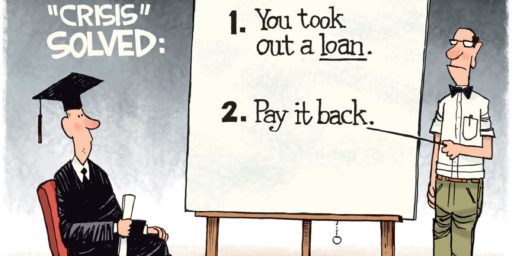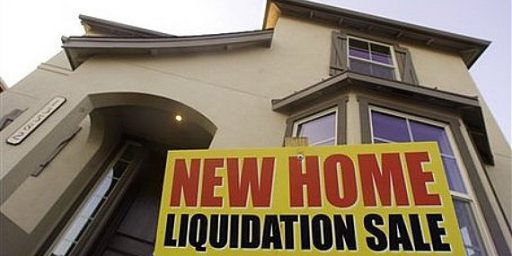Housing Bubble Bursting for Alt-A’s?
Fester warns that, just when you thought that the bursting of the housing bubble was confined to those who took on risky “sub-prime” loans, news comes out that there may be a problem with with the “Alternative A” or “Alt-A” loans, which “account for about 21 percent of loans outstanding and 39 percent of mortgages made in 2006.”
He believes this may have serious consequences:
As credit standards continue to tighten from absurdly loose to only loose, rolling over bad decisions and loans will not be viable in the future. There are three remaining options. The first and most preferable is for a crunched borrower to find someone to sell their property at a high enough value to get them out of their obligations with minimal damage. The problem here is that housing inventory is still expanding and plenty of people are just as or more desperate to unload their houses as any individual seller. So getting a price that is sufficient, after transaction costs, to pay off a bubble mortgage will be tough. The next preferable solution, and most likely the most common solution, will be for crunched borrowers to suck it up, and try to outlast any housing price downturn while still paying their mortgage and carrying costs. The final solution is for an increase in foreclosures to increase as people walk away from disasters.
Indeed, if you’re in a house you paid a million dollars for two years ago and it’s now worth $800,000, that last option may be all that’s left to you. If you got in without much of a down payment–which presumably most Alt-A borrowers did–it likely won’t be that ruinous.
Of course, if it’s a second or third home that you bought in hopes of flipping in a few months at a profit–which is apparently the case with a substantial chunk of this class of borrowers–it’s a crushing blow. But then that’s the nature of high risk, high reward ventures.






And if you are in a million dollar home that is now worth only $800K, think of how much better off you would have been getting into a substantially cheaper home in the first place.
I’m sorry, but if you are buying a million dollar house you can’t afford hoping for some market magic to happen, that is like drawing to an inside straight. It may work occasionally, but don’t come crying to me when it goes south.
What is an “Alt-A” loan? Oh and very good point yetanotherjohn!
“A” paper is a conventional, fully documented loan.
Alt-A – is a non-conventional loan. Alt-A may rely on alternative sources of documentation to qualify a borrower. For example, a lender may use 12 months of bank statements for a self-employed borrower, the lender will calculate a percentage of total deposits into the account and call it income. A conventional loan would require tax returns. Alt-A generally has a higher interest rate because the borrower profile is considered to be a higher risk (lower credit score, minimal reserves and/or higher loan-to-value)
Thanks for the education Candi.
candy & yetanotherjohn – You have said what I didn’t know how to say. Further, this scenario leaves out other influential factors, such as the likelihood of higher unemployment levels creating more foreclosures, creating more empty housing inventory…
Eventually the cycle will bottom out & things will get better. But to say it “likely won’t be that ruinous.” is whistling in the dark, especially for those who lose all they have.
I just hope that those of us who _aren’t_ speculating morons won’t be left holding the bag in the form is a speculator bailout.
James — first thanks for the link, I appreciate it. Secondly, you are right a good deal of the Alt-A borrowers who are in trouble or may be in trouble will have an out that is personally non-devastating. However I am worried about three things. The first is the marginal borrower, they are going to be wrecked. Secondly, without the marginal borrower higher up on the credit ladder than the marginal subprime borrower that is already being destroyed, there are now far fewer marginal sellers despite facing more desperate buyers facing reality that they won’t see double digit appreciation, and finally I continue to worry about the secondary impacts of a decline in housing transaction volume and dollar levels on the wider economy.